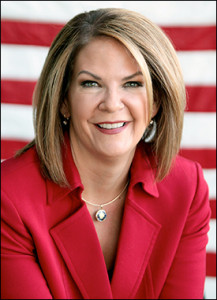By Jim Ellis
Nov. 1, 2017 — Two political polls were released into the public domain yesterday. The first survey is of interest because it already examines a budding open seat Arizona Senate Republican primary, and becomes the first gauge of how former state Sen. Kelli Ward, who had been challenging Sen. Jeff Flake (R), performs in a new situation.
Another in a series of Virginia gubernatorial polls was also published Monday as we begin the last week of the election contest. Here, we question the results’ accuracy.
Arizona Senate
Speculation has been hot and heavy during the past few days, the first time interval since Sen. Flake announced he would not seek a second term largely because of dismal re-election prospects. Culminating the early conjecture are Phoenix-based Data Orbital’s (DO) new conclusions (Oct. 26-28; 500 likely Arizona GOP primary voters) finding former state Sen. Ward leading a pack of potential Senate candidates, but with a margin that suggests the impending Republican primary is anybody’s game.Looking at the DO results, Ward places first with 26 percent, followed by Rep. Martha McSally (R-Tucson) at 19 percent, and former Rep. Matt Salmon (R-Mesa) coming next at 10 percent, while ex-Rep. John Shadegg (R-Scottsdale), Rep. David Schweikert (R-Fountain Hills/Scottsdale), and Arizona University Regent Jay Heiler score 6, 5, and 1 percent, respectively.

